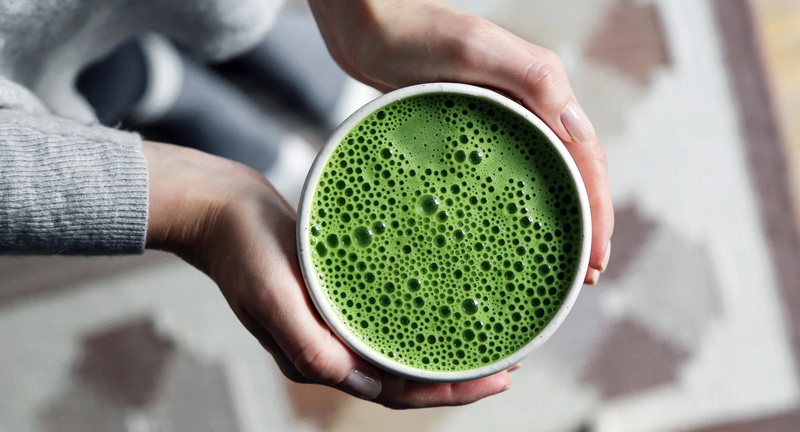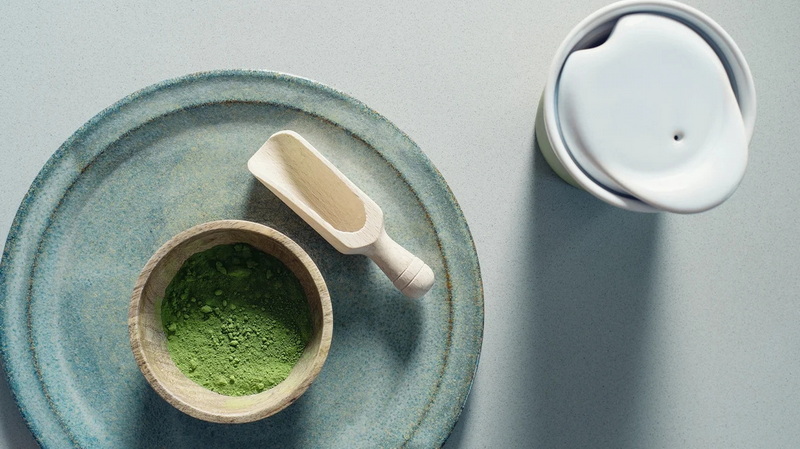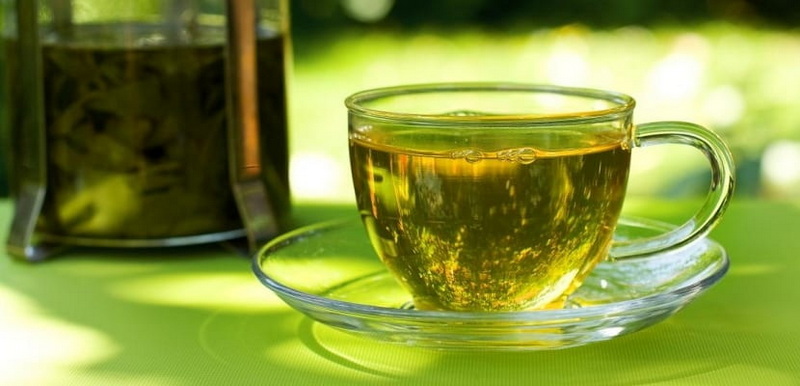Content Menu
● Understanding Green Tea Extract
● Caffeine Content in Green Tea Extract
>> Caffeine Levels in Common Green Tea Extracts
● Health Benefits Associated with Caffeine in Green Tea Extract
● Factors Affecting Caffeine Extraction
● Comparing Caffeine Content with Other Beverages
● Potential Side Effects of High Caffeine Intake
● Recommended Dosage
● Conclusion
● FAQ
>> 1. How much caffeine is typically found in a cup of green tea?
>> 2. Can I find decaffeinated green tea extracts?
>> 3. What are the health benefits associated with green tea extract?
>> 4. Is it safe to consume high doses of green tea extract?
>> 5. How does brewing time affect the caffeine content in green tea?
● Citations:
Green tea extract has gained popularity for its numerous health benefits, including its antioxidant properties, weight loss support, and potential to enhance cognitive function. However, one common question that arises is about its caffeine content. This article aims to provide a comprehensive overview of how much caffeine is typically found in green tea extract, the factors influencing this content, and the implications for consumption.

Understanding Green Tea Extract
Green tea extract is derived from the leaves of the Camellia sinensis plant, which are minimally processed to preserve their beneficial compounds. The extract is rich in catechins, particularly epigallocatechin gallate (EGCG), which are believed to be responsible for many of its health benefits.
Green tea has been consumed for centuries in various cultures, particularly in East Asia. The traditional preparation involves steeping the leaves in hot water, which allows the release of beneficial compounds. In contrast, green tea extract is often available in supplement form, providing a concentrated dose of these compounds without the need for brewing.
Caffeine Content in Green Tea Extract
The caffeine content in green tea extract can vary significantly depending on several factors:
- Brand and Formulation: Different brands of green tea extract supplements can contain varying amounts of caffeine. For instance:
- Some supplements may contain as little as 2-50 mg of caffeine per serving.
- Others can exceed 200 mg of caffeine per serving.
- Type of Extract: The concentration of the extract also plays a crucial role. For example:
- A typical cup of brewed green tea contains about 30-50 mg of caffeine.
- In contrast, concentrated extracts can have much higher levels due to the extraction process.
- Processing Method: The method used to produce the extract can influence its caffeine levels. For example, extracts made from shaded tea leaves tend to have higher caffeine content compared to those made from non-shaded leaves.
Caffeine Levels in Common Green Tea Extracts
Here are some examples of caffeine levels found in various green tea extract supplements:
- NOW Foods Green Tea Extract: Approximately 32 mg of caffeine per 400 mg serving.
- Nature's Truth Green Tea Extract: Contains about 200 mg of caffeine per serving.
- Life Extension Mega Green Tea: Offers around 25 mg of caffeine per serving with 725 mg of green tea extract.
Health Benefits Associated with Caffeine in Green Tea Extract
Caffeine is a natural stimulant that can enhance alertness and energy levels. In the context of green tea extract, it may also offer additional benefits:
- Improved Metabolic Rate: Studies suggest that caffeine can increase energy expenditure and fat oxidation, potentially aiding in weight management. Research indicates that consuming caffeine before exercise may enhance performance by increasing endurance and reducing perceived exertion.
- Enhanced Cognitive Function: Caffeine has been shown to improve focus and mental clarity, making it beneficial for cognitive performance during tasks requiring attention. Some studies have indicated that moderate caffeine consumption may protect against cognitive decline as we age.
- Antioxidant Effects: The combination of caffeine with catechins in green tea may enhance antioxidant activity, providing additional health benefits beyond those offered by caffeine alone. Antioxidants help combat oxidative stress and inflammation in the body.

Factors Affecting Caffeine Extraction
The amount of caffeine extracted from green tea leaves can be influenced by several factors:
- Brewing Time and Temperature: Longer brewing times and higher temperatures generally result in higher caffeine extraction. For example, brewing at 100 degrees Celsius for a longer duration can yield up to 74% of the total caffeine content in the leaves.
- Tea Type: Different types of green tea, such as matcha or gyokuro, have varying levels of caffeine due to differences in processing and cultivation methods. Matcha, for instance, contains higher caffeine levels because it uses powdered whole leaves instead of steeped leaves.
- Leaf Quality: The quality and age of the leaves also play a role; younger leaves typically have higher concentrations of both catechins and caffeine compared to older leaves.
Comparing Caffeine Content with Other Beverages
To better understand how green tea extract compares with other common sources of caffeine, consider the following table:
| Beverage | Average Caffeine Content (mg) |
| Brewed Coffee (8 oz) | 95-200 |
| Espresso (1 oz) | 63 |
| Black Tea (8 oz) | 40-70 |
| Green Tea (8 oz) | 30-50 |
| Green Tea Extract (1 g) | 30-200+ |
As seen from this comparison, while green tea extract does contain caffeine, it typically has less than coffee or espresso but can be comparable to or exceed that found in brewed black tea depending on the concentration.
Potential Side Effects of High Caffeine Intake
While moderate consumption of green tea extract is generally considered safe, excessive intake can lead to side effects similar to those caused by other sources of caffeine:
- Jitters and Anxiety: High doses may cause restlessness or increased anxiety levels. Individuals sensitive to caffeine may experience these effects even at lower doses.
- Sleep Disturbances: Consuming large amounts or taking it late in the day may interfere with sleep patterns. It is advisable to limit intake before bedtime to avoid insomnia.
- Digestive Issues: Some individuals may experience gastrointestinal discomfort when consuming high doses of green tea extract due to its acidity or stimulant effects.
Recommended Dosage
For most individuals looking to benefit from green tea extract without experiencing adverse effects, a daily dosage ranging from 250 mg to 500 mg is generally considered safe. However, it's essential to consult with a healthcare provider before starting any new supplement regimen, especially for those with pre-existing health conditions or those taking medications.
Conclusion
Green tea extract is a powerful supplement that offers numerous health benefits alongside its caffeine content. The amount of caffeine in these extracts varies widely based on brand, formulation, and processing methods. Generally, consumers should be aware of their individual tolerance levels to caffeine and choose products accordingly.
Understanding how much caffeine is present in green tea extracts allows individuals to make informed decisions about their consumption based on their lifestyle needs and health goals.

FAQ
1. How much caffeine is typically found in a cup of green tea?
A standard cup (8 oz) of brewed green tea contains approximately 30-50 mg of caffeine.
2. Can I find decaffeinated green tea extracts?
Yes, there are decaffeinated versions available that contain little to no caffeine.
3. What are the health benefits associated with green tea extract?
Green tea extract is known for its antioxidant properties, potential weight loss benefits, and ability to enhance cognitive function.
4. Is it safe to consume high doses of green tea extract?
While moderate doses (300-800 mg/day) are generally safe for most individuals, excessive intake can lead to side effects related to high caffeine consumption.
5. How does brewing time affect the caffeine content in green tea?
Longer brewing times at higher temperatures increase the extraction rate of caffeine from the leaves.
Citations:
[1] https://www.livestrong.com/article/186702-how-much-caffeine-is-in-green-tea-extract/
[2] https://pubmed.ncbi.nlm.nih.gov/16506807/
[3] https://www.healthline.com/nutrition/10-benefits-of-green-tea-extract
[4] https://www.youtube.com/watch?v=5OlyxaRgabw
[5] https://www.sugimotousa.com/blog/green-tea-vs-coffee-everything-you-need-to-know
[6] https://www.elo.health/articles/green-tea-extract-supplements/
[7] https://en.wikipedia.org/wiki/Green_tea
[8] https://www.youtube.com/watch?v=CkdqsIhHEhM
[9] https://www.caffeineinformer.com/caffeine-content/green-tea-extract
[10] https://www.youtube.com/watch?v=Q8gBjZ5e3Bs
[11] https://www.reddit.com/r/chemistry/comments/3gt1zo/how_much_caffeine_in_green_tea_extract/
[12] https://www.medicalnewstoday.com/articles/269538
[13] https://hammernutrition.com/blogs/endurance-news-weekly/green-tea-extract-in-fully-charged
[14] https://www.webmd.com/vitamins/ai/ingredientmono-960/green-tea
[15] https://pmc.ncbi.nlm.nih.gov/articles/PMC7098939/
[16] https://pmc.ncbi.nlm.nih.gov/articles/PMC4307170/
[17] https://www.youtube.com/watch?v=RIbff5iD0GQ






























